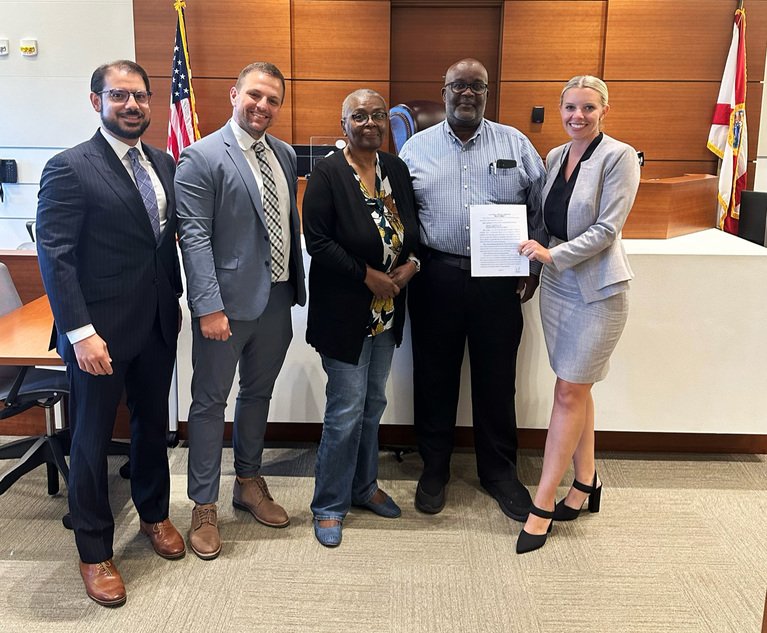Car accidents are one of the leading causes of traumatic brain injuries (TBIs) in Florida. Even seemingly minor collisions can produce violent forces that shake, compress, or strike the brain within the skull. The aftermath may not always be immediately visible—unlike broken bones or open wounds—but the neurological consequences can be devastating and life-altering.
If you or someone you love has suffered a serious injury in a Florida car accident, you should get strong legal representation from an experienced personal injury lawyer to recover maximum compensation from the negligent party.

What Happens to the Brain During a Car Accident?
The brain is a delicate organ suspended in cerebrospinal fluid inside the skull. During a car crash, the sudden deceleration or acceleration of the body can cause the brain to collide with the inside of the skull. This mechanism—known as coup-contrecoup injury—can result in bruising (contusion), swelling, and tearing of blood vessels or nerve fibers.
Brain injury may vary depending on the type and severity of the crash. Different types of brain injuries include:
- Concussions – Mild traumatic brain injuries (mTBI) that cause temporary dysfunction.
- Contusions – Bruising of brain tissue from impact with the skull.
- Diffuse Axonal Injury (DAI) – Tearing of nerve fibers due to rotational forces.
- Penetrating Injuries – When an object penetrates the skull and brain tissue.
- Intracranial Hemorrhage – Bleeding within or around the brain, which may lead to increased pressure.
Notably, brain injuries can happen even without a direct blow to the head. The sheer force of the crash can be enough to cause whiplash-type injuries that affect brain function.
Common Symptoms of Post-Car Accident Brain Injuries
Symptoms of a brain injury can manifest immediately or be delayed by hours or even days. The signs vary depending on the severity and part of the brain affected. Common symptoms include:
Cognitive Symptoms:
- Memory loss (short-term or long-term)
- Confusion or disorientation
- Difficulty concentrating
- Slowed thinking or speech
Physical Symptoms:
- Headaches
- Dizziness or balance issues
- Nausea or vomiting
- Sensitivity to light and sound
- Fatigue or sleep disturbances
- Seizures (in severe cases)
Emotional and Behavioral Symptoms:
- Irritability
- Depression or anxiety
- Mood swings
- Personality changes
One of the most challenging aspects of brain injuries is their invisibility. Individuals may appear physically well but struggle with debilitating cognitive or emotional impairments. This is why brain injuries are sometimes called “invisible disabilities.”
Diagnostic Tools and Medical Evaluation
Proper diagnosis of a brain injury after a car accident is essential. Emergency room physicians typically begin with a neurological exam and may use imaging tools such as:
- CT (Computed Tomography) scans – To detect bleeding, swelling, or skull fractures.
- MRI (Magnetic Resonance Imaging) – More detailed imaging of soft tissue and brain structures.
- Neuropsychological Testing – Evaluates cognitive and behavioral functioning over time.
- Glasgow Coma Scale (GCS) – Assesses consciousness and severity of injury, particularly useful in emergency settings.
In many mild cases, imaging may not show definitive damage, but symptoms persist. This makes clinical assessment, follow-up, and specialist consultation crucial.
Long-Term Impact of Car Accident Brain Injuries
The long-term effects of TBIs range from mild and temporary to profound and permanent. While many people with concussions recover within weeks, others face chronic impairments that interfere with daily living. A skilled Florida car accident attorney can find evidence to prove the other driver’s negligence and protect your legal rights for compensation for brain injuries.
Post-Concussive Syndrome (PCS)
This condition involves persistent symptoms—headaches, dizziness, concentration issues—for weeks or months after a concussion. PCS can affect one’s ability to work, attend school, or maintain relationships.
Cognitive Impairment
Moderate to severe TBIs may result in lasting damage to memory, executive functioning (planning, judgment), language, and processing speed. These deficits may require lifelong rehabilitation and support.
Emotional and Behavioral Changes
Brain injuries can disrupt emotional regulation and behavior, leading to increased risk of depression, anxiety, aggression, impulsivity, and social withdrawal. Family members may struggle with these personality changes.
Risk of Neurodegenerative Disease
There is increasing evidence linking TBIs to long-term brain conditions such as chronic traumatic encephalopathy (CTE), Alzheimer’s disease, and Parkinson’s disease. Repeated TBIs or severe injuries may accelerate the onset of these diseases later in life.
Treatment and Rehabilitation
Effective treatment of brain injuries often requires a multidisciplinary approach, including:
- Medication – To manage pain, seizures, depression, or sleep disorders.
- Cognitive Rehabilitation – Therapy focused on improving memory, attention, and executive functioning.
- Physical Therapy – To help with balance, coordination, and mobility.
- Occupational Therapy – Aims to restore the ability to perform daily tasks.
- Psychotherapy – For emotional recovery and coping with mental health effects.
- Speech and Language Therapy – Assists with communication and swallowing difficulties.
The recovery journey is nonlinear and may involve long-term care, family support, and lifestyle adaptations.
Legal Implications: Brain Injuries and Car Accident Claims
Brain injuries are often complex and costly, both medically and legally. From a legal standpoint, they may require:
- Medical Experts – To explain the neurological impact and prognosis.
- Life Care Planners – To calculate future medical needs and associated costs.
- Economic Experts – To estimate lost earning capacity, especially in severe cases.
- Neuropsychologists – To demonstrate cognitive deficits that are not easily visible.
Because brain injuries can result in invisible impairments, insurance companies may downplay their severity or deny coverage entirely. An experienced personal injury attorney can help ensure that all aspects of the injury—including long-term impact—are fully accounted for in the claim.
The Importance of Immediate Medical and Legal Help
If you suspect a brain injury after a car accident, it is critical to seek immediate medical care, even if you feel “okay.” Early documentation of symptoms and diagnosis plays a pivotal role in both treatment and legal recovery.
At the same time, you can receive brain injury support in Florida from an experienced car accident attorney to recover full compensation for your medical expenses, lost wages, and pain and suffering.
Get Our Award-Winning Florida TBI Lawyer on Your Side
If you or a loved one has suffered a traumatic brain injury (TBI) in Florida, trust the legal team at Amanda Demanda Injury Lawyers; we have recovered over $500 million for our clients. We bring deep experience and relentless determination to every TBI case, no matter how complex.
Led by attorney Amanda Demanda, a legal powerhouse both in the courtroom and during high-stakes settlement negotiations, we fight for the full and fair compensation you are entitled to. To schedule your free consultation, call us 24/7 at 1-844-DEMANDA or contact us online.
Back to Blog






